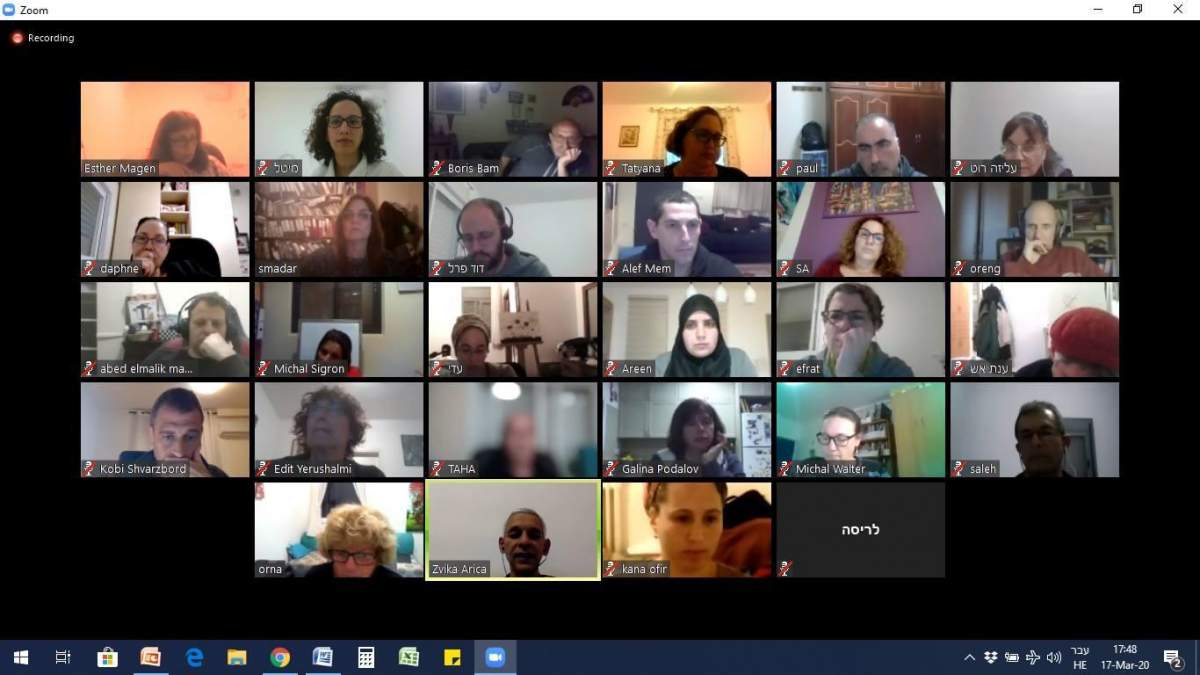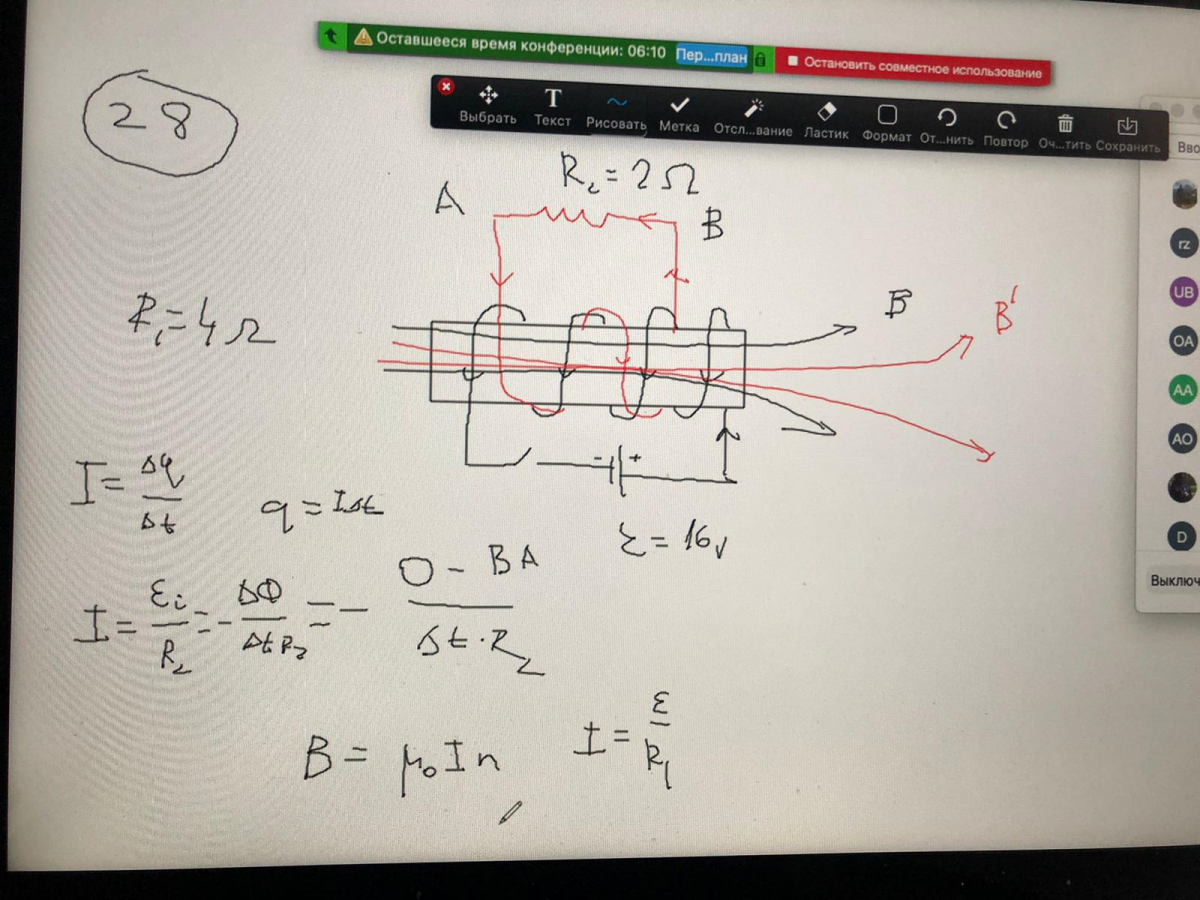Are you a journalist? Please sign up here for our press releases
Subscribe to our monthly newsletter:

Something remarkable is taking place these days when it comes to remote physics teaching. Even before educational institutions officially closed their doors due to the coronavirus crisis, the Department of Science Teaching at the Weizmann Institute of Science had prepared for the new reality. "In the week prior to the physical closure of schools, we convened all staff and prepared online learning units enabling teachers to perform all facets of distance learning on 'hot' topics required for the upcoming matriculation exams," says Prof. Edit Yerushalmi, head of the Department's Physics Education Research Group. "Physics teachers have proven that, in the midst of the crisis they harness their creativity, dedication and abilities, spending hours upon hours adapting their teaching practices for remote learning platforms."
According to Dr. Netta Bruchiel-Spanier, a physics teacher from the Hebrew University of Jerusalem's Teacher-Researcher Program, when the coronavirus crisis erupted, a sense of uncertainty prevailed among the students, teachers, school administration and the Ministry of Education – no one could say what was going to happen. "The Weizmann Institute of Science adapted to the new situation rather quickly and offered many distance learning online training courses. The initiative provided the opportunity for teachers to receive tutorials, pedagogical materials and online assistance in order to shift to online learning without forsaking any students. In addition, at the end of each online meeting, a representative of the Ministry of Education was available to answer the teachers' questions."

About half of all physics teachers in Israel endorsed the complex initiative designed to help them reconnect with their students' – identifying their understanding of the topics taught in real-time and engaging them from a distance – managing without their whiteboard, lab, and most importantly, eye contact with their students.
Four subunits of the Physics Education Research Group at the Department of Science Teaching joined efforts and contributed their expertise to the venture, led by Prof. Yerushalmi: the National Center for Physics Teachers' team, led by Prof. Yaron Lehavi, collated teaching and learning materials, saving teachers the time required to locate and sort materials online; the PeTeL (Personalized Teaching and Learning Environment) Physics mentors, led by Prof. Bat-Sheva Eylon and her graduate student Asaf Bar-Yosef, embedded the materials in the PeTeL learning management system and guided the teachers in creating their own teaching sequences within the system, making interactive assignments accessible, and tracking the performance of their students; teacher-leaders of the physics teachers communities who are usually engaged in the professional development of teachers, led by Dr. Smadar Levy, were also enlisted to operate an "online teachers' room" to help teachers tailor the materials to their students, the school's online infrastructure, and the educational goals.
The Ministry of Education's national physics inspectors, Dr. Zvika Aricha and Dr. Orna Bloomberger, joined each of the online teachers' room meetings to support and assist the teachers. All the participants worked around the clock, above and beyond what was required of their role, to address the need for something new, resulting in hundreds of physics teachers attending training sessions and about 9,000 high-school physics students currently studying remotely using the PeTeL system.
Twelfth-grader Hodaya Mogami shared her experience of the online learning process: "The lesson is delivered via a video call with presentations, videos and explanations. At the same time, the teacher divides us into groups so that we can practice tasks together. The tasks are immediately checked by the computer that informs us where our difficulties lie."
Among the curricular achievements during the coronavirus pandemic is the online teachers' room that aired on March 15 and has been running incessantly ever since. The online teachers' room provides fertile ground for meetings, tutorials, collaborations and consultations on physics instruction. Abdel Masalha, a physics teacher from Kafr Qara, recounts the experience: "At the same time we received the terrible news regarding the closure of schools, the Weizmann Institute of Science informed us about the launch of an online physics teachers' room. A meeting was conducted remotely and focused on how to make distance learning a success."
Ayelet Shaked, a 10th-12th grade physics teacher at the Wizo Nahalal Agricultural High School, and a graduate of the Rothschild-Weizmann Program, was introduced to PeTeL during her studies. She now uses it on a regular basis with her students and is also guiding new teachers on how to use it. "I have been using PeTeL for three years now," says Shaked, "and irrespective of the coronavirus, it allows me to routinely teach classes to students and track their performance. It provides an additional setting beyond school that allows me to be in touch with my students."

"I have no doubt that our teaching methods during the coronavirus outbreak has changed completely, and we have made great strides for the 21st century," says Boris Bam, a physics coordinator at two schools in the Sharon area, who attended the online teachers' room meeting at the beginning of the crisis. "In light of the situation we are currently facing, the tools available to us today make learning effective, efficient and conducive to students," concludes Bruchiel-Spanier.
Prof. Bat-Sheva Eylon's research is supported by the Edmond de Rothschild Foundation; the Abraham and Sonia Rochlin Foundation; and Teva Pharmaceuticals.
The PeTeL (Personalized Teaching and Learning Environment) Program is supported by Gideon Hamburger; the Henri Gutwirth Fund for Research; and the Eddie and Jules Trump Family Foundation.